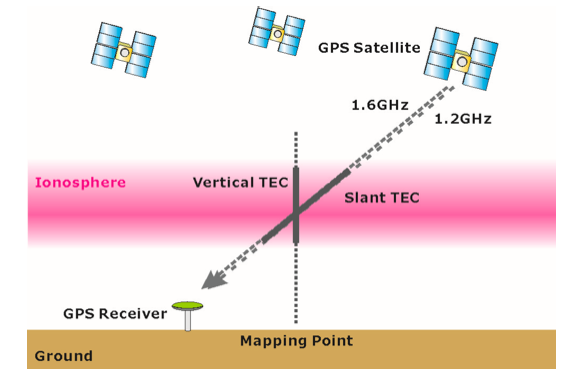In today's blog post, Chukwuma Anoruo, a third year PhD student in the University of Nigeria, talks about the difficulties about research in developing countries. Though there is abundant talent, the lack of opportunities and funding is a major disadvantage that holds back many students that are interested in working in this field.
To begin with, I will first highlight my studentship career in science, early stage, challenges experienced
and how I was able to overcome them through attending virtual international conferences, workshops and communications with senior scientists in Space Science and discussions with my advisors.
The early stage of my doctoral program was quite funny, with my transition from lower to upper atmosphere study. It was not totally challenging, and all I did was update myself in the field of space weather topic and research. I started reading more manuscripts, textbooks, attending conferences, workshops and engaging in space weather discussion through Twitter and other social media. Most of all, I became a member of Join Study Group (JSG), whose research aim is to improve the understanding of coupled processes in Magnetosphere, Thermosphere and Ionosphere (MTI). The president of the group Associate professor Andrés Calabia Aibar has been of regular help. Also my supervisors have been advising on better pathway, where I join viva and discussions on space weather research trend to keep up-to-date results.
Although after my MS, I got accepted to join a prestigious laboratory in Canada on methane measurements, I was really delayed during the processing of documents and was informed that the position has been given to a Canadian. Then my good friend Kelechi Ndubuisi raised funds for my PhD program. I participated in several space weather discussions, and have helped some MS students to discuss their results. I also interact well with other doctoral students sharing ideas and providing answers to their questions. It is quite unfortunate that doctoral students in developing countries lack adequate funding for research and conference sponsorship. It is difficult getting opportunities to be trained outside our region. The field of upper physics is very interesting, though use of data often becomes a problem, mostly for Africa (Nigeria), where GNSS are quiet scarce.
I started as a PhD student in 2018 at the University of Nigeria, Nsukka. I was received and housed by a friend whom I meet during our BS days. Later, I changed accommodation and the switch became a bit far from the University. It was quiet challenging, mostly due to transportation, where I lack funds to take care of. My research is in total electron content variations during geomagnetic storm. I went on a two months research visit at National Space Research and Development Agency, Abuja. I had the opportunity to concentrate more and work out results in total electron content. I participated in several space physics conferences and one of the conference proceeding will soon appear in International Symposium on Space Science (ISSS) held in Lapan, Indonesia.
 |
| GNSS-TEC observations. Credit : http://www.unoosa.org (pdf NICT, Japan) |
PhD research where there is no funding really used to be difficult. I know of a friend that quit his PhD when it became obvious that he can no longer get the fund. The government of our country keeps absolute silence over this and to say, PhD students here do not relent in effort. Certainly, I attribute much of my success to hardwork, networking, comments and suggestions from virtual and physical presentations. I see the need to fund PhD students so as to make studentship in Nigeria interesting. I came to know about SCOSTEP program in space research through networking. Although, international laboratory head most times reply that they have limited fund admitting more than 2 students. Such activities should be encouraged also in Nigeria, that will also help get good postdoctoral position and contribute in solving space weather problems. The number of postdocs in Nigeria is low, because most people find it difficult getting an offer. This I should say is lack of training in the field of research. There should be an initiative to support and fund PhD students in Nigeria.










Wow
ReplyDeleteThis is an elaborate eye opener. An average of what one goes through just to further education in Nigeria. Finace is really a challenge I'm scared of. I do wish something positive will greatly be done. I pray and wish you get to your peak. You are one of those I look up to academically. Ride on! More power to your elbow.